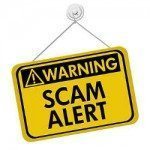]]>
We received this news report, which we think was found at Bloomberg. We believe that this is real, though the bank refuses to reply to calls from Bloomberg. Any comments or feedback is appreciated.
Hong Kong banks sold notes linked to failed
Lehman Brothers Holdings Inc. to elderly, poorly educated and mentally
ill people, according to a central bank investigation that may fuel
demands for better protection of the city’s investors.
The Legislative Council released previously blacked-out sections of
a Hong Kong Monetary Authority report showing 102 cases in which
“vulnerable” investors were sold the credit- linked notes, which
plunged in value after Lehman’s Sept. 15 bankruptcy.
The disclosure was held up after the HKMA sought to keep some of
its findings private and follows almost daily street protests by
elderly investors who claim that banks had said the securities were
low-risk. A total of HK$13.9 billion ($1.8 billion) of the
credit-linked notes arranged by a local unit of Lehman were sold to
Hong Kong individuals, according to the Securities and Futures
Commission.
“If more restrictions are placed on the sale of investment products
it could add a lot onto banks’ operating costs,” said Paul Lee, an
analyst at Hong Kong-based Tai Fook Securities Ltd. “Customers may also
be more reluctant to invest because of all the extra documents they
have to go through.”
The central bank identified 102 cases where complex and risky
investments were sold by banks to “vulnerable” investors, according to
information contained in the blacked-out section of the HKMA report
made public at a hearing in the city’s Legislative Council today.
Investor Interest
Some investors have alleged that banks and brokerages misrepresented the potential risks when selling the notes.
“What’s important right now is what the HKMA is preparing to do to
help investors get their money back,” said Chim Pui- chung, a
legislator representing the financial services industry. “So far they
haven’t offered much on this part.”
The central bank had previously refused to disclose parts of its
findings, arguing that it would be “against public interest.” It later
agreed to reveal in closed meetings deleted parts of the report to
legislators.
Sun Hung Kai & Co., the city’s biggest local brokerage by
market value, in February agreed to pay back investors in the notes,
making it the first vendor to decide to provide a full refund. It
didn’t admit to any liability or wrongdoing in selling the products.
BOC Hong Kong Ltd., Bank of East Asia Ltd., Wing Hang Bank Ltd. and
Dah Sing Banking Group Ltd. were among the 19 firms that sold the
notes, according to the Hong Kong Association of Banks.
Clarina Man, a spokeswoman for BOC Hong Kong, declined to comment
on the HKMA report. Vera Lung, a spokeswoman for Bank of East Asia,
didn’t immediately return calls from Bloomberg seeking comment.








